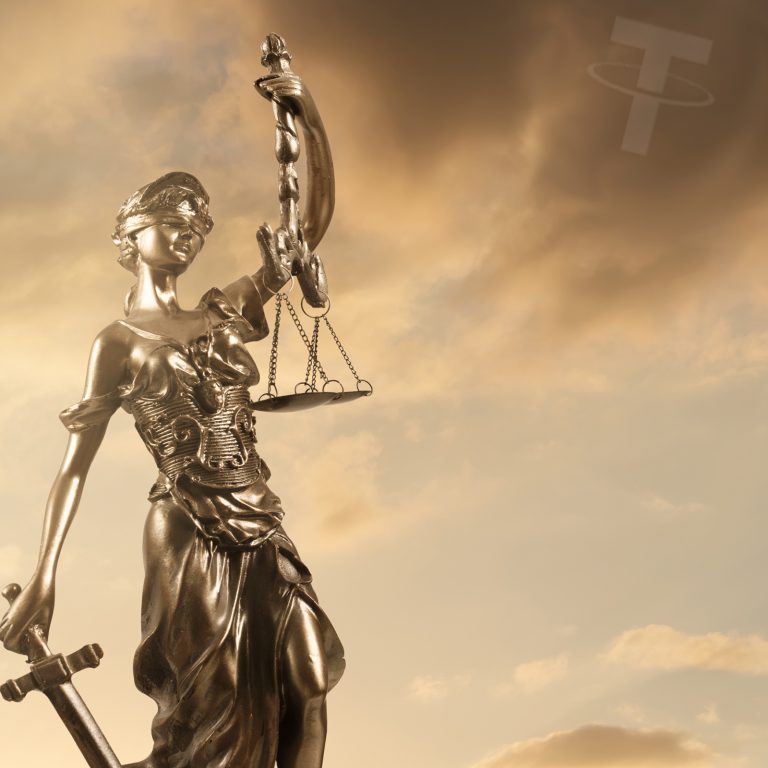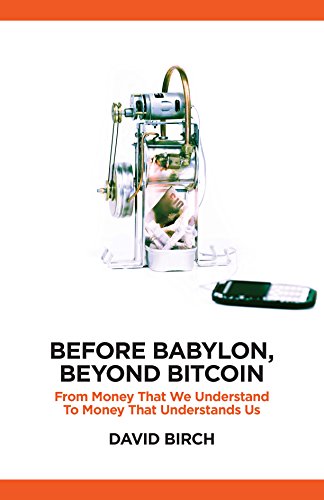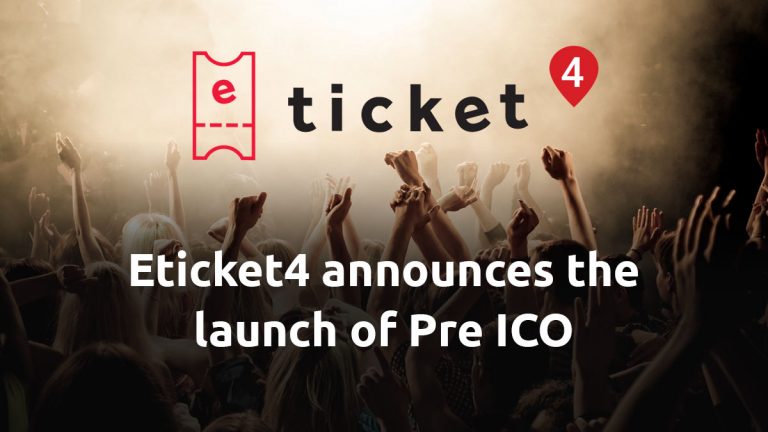https://news.bitcoin.com Daily Bitcoin News Wed, 31 Jan 2018 00:30:49 +0000 en-US hourly 1 https://wordpress.org/?v=4.8.5 https://news.bitcoin.com/bungling-bitcoin-thieves-foiled-by-quick-witted-trader/ https://news.bitcoin.com/bungling-bitcoin-thieves-foiled-by-quick-witted-trader/#comments Wed, 31 Jan 2018 00:30:49 +0000
 Last week mainstream media reported on Britain’s first armed bitcoin robbery. Thieves were said to have broken into the home of high profile trader Danny Aston, tied up his girlfriend, and forced him to transfer his vast cryptocurrency holdings. It turns out that the audacious thieves didn’t get away with so much as a satoshi […]
Last week mainstream media reported on Britain’s first armed bitcoin robbery. Thieves were said to have broken into the home of high profile trader Danny Aston, tied up his girlfriend, and forced him to transfer his vast cryptocurrency holdings. It turns out that the audacious thieves didn’t get away with so much as a satoshi […]
The post Bungling Bitcoin Thieves Foiled by Quick-Witted Trader appeared first on Bitcoin News.
]]>
Last week mainstream media reported on Britain’s first armed bitcoin robbery. Thieves were said to have broken into the home of high profile trader Danny Aston, tied up his girlfriend, and forced him to transfer his vast cryptocurrency holdings. It turns out that the audacious thieves didn’t get away with so much as a satoshi after the quick-thinking victim fooled them into believing he had transferred the funds.
Also read: U.S. Regulators Send Tether and Bitfinex Subpoenas
Do You Even Blockchain?
Bitcoin heists are different from conventional robberies in that there are no material goods to flee the scene with. In every other respect though they bear all the hallmarks of a classic heist: masked men, guns, the element of surprise, kidnapping, threats of violence, and actual violence. Last week’s story of city trader and crypto adopter Danny Aston was a familiar tale which may have been a UK first, but globally was nothing new. Thieves have been attracted to wealth since time immemorial, and whether those riches appear in digital or analogue form makes little difference. Crypto; gold; jewelry; it’s all good.
There’s a coda to this particular story though which makes it worthy of closer scrutiny: in the end the thieves – three black, one white – got away with nothing because the victim, despite having his partner tied up and their young child placed outside in a buggy, duped the attackers into thinking they’d received his crypto. Quite how he achieved this feat is a matter for debate; one possibility is that he set the fee too low for the transaction to be mined. The replace-by-fee option which some wallets offer, for example, also allows for the destination address to be changed after the fact. Brave or foolish, the move paid off and thus, if reports are to be believed, Mr. Aston still has his cryptocurrency riches while the thieves have nothing to show for their efforts bar a major police investigation.

Desperate Times Call for Desperate Measures
Regardless of the wisdom of 30-year-old Danny Aston’s flash decision, it’s paid off. The city trader still has his fortune and has hopefully since beefed up his op-sec, both in his $1.1 million rural home and in terms of securing his digital assets. While most cryptocurrency holders aren’t likely to be threatened by armed gangs, the case illustrates the value of establishing security measures that can thwart a range of attack vectors. Any funds that are stored in a hot wallet – i.e one that can be accessed instantly by a single entity – are at risk.
That’s what happened last week to Coincheck, when the Japanese exchange, having failed to implement multi-sig, had its NEM wallet relieved of $400 million of cryptocurrency. And it’s what appeared to have happened to Danny Aston, a resident of the upscale Oxfordshire village of Moulsford, until it emerged that the heist hadn’t gone to plan. A local police spokesperson said: “It’s correct to say that the attempted transaction of bitcoins failed.”
Keep It Locked Down and On the Lowdown
 The importance of being discreet when it comes to disclosing cryptocurrency involvement has already been drummed into most bitcoiners. This particular incident serves as a prime opportunity to reiterate a number of home truths. For one thing, crypto that is in cold storage – be it on a hardware wallet in a bank vault or under the control of multi-sig – is immune from opportunistic home invasions. In addition, Ledger and Trezor both offer advanced passphrase options. That way, even if forced to hand over your cryptocurrency, you can unlock a false address that contains mere shrapnel.
The importance of being discreet when it comes to disclosing cryptocurrency involvement has already been drummed into most bitcoiners. This particular incident serves as a prime opportunity to reiterate a number of home truths. For one thing, crypto that is in cold storage – be it on a hardware wallet in a bank vault or under the control of multi-sig – is immune from opportunistic home invasions. In addition, Ledger and Trezor both offer advanced passphrase options. That way, even if forced to hand over your cryptocurrency, you can unlock a false address that contains mere shrapnel.
As for Mr Aston, he may have won this particular battle, but now the whole world knows he’s still sitting on a sizeable stash of cryptocurrency. If he’s to win the war, he’ll need to bolster his security and take measures to emphasize that he no longer has instant access to vast amounts of crypto. The Englishman got of lightly on this occasion. Next time he might not be so fortunate.
What do you think is the best defense against home invasions? Let us know in the comments section below.
Images courtesy of Shutterstock.
The Bitcoin universe is vast. So is Bitcoin.com. Check our Wiki, where you can learn everything you were afraid to ask. Or read our news coverage to stay up to date on the latest. Or delve into statistics on our helpful tools page.
The post Bungling Bitcoin Thieves Foiled by Quick-Witted Trader appeared first on Bitcoin News.
]]>
https://news.bitcoin.com/bungling-bitcoin-thieves-foiled-by-quick-witted-trader/feed/ 17 https://news.bitcoin.com/facebook-bans-cryptocurrency-ads/ https://news.bitcoin.com/facebook-bans-cryptocurrency-ads/#comments Tue, 30 Jan 2018 21:58:24 +0000
 Following persistent complaints about spammy and fraudulent cryptocurrency ads, Facebook has issued an outright ban. As of a new ruling issued on January 30, “ads must not promote financial products and services that are frequently associated with misleading or deceptive promotional practices, such as binary options, initial coin offerings, or cryptocurrency”. The move is sure […]
Following persistent complaints about spammy and fraudulent cryptocurrency ads, Facebook has issued an outright ban. As of a new ruling issued on January 30, “ads must not promote financial products and services that are frequently associated with misleading or deceptive promotional practices, such as binary options, initial coin offerings, or cryptocurrency”. The move is sure […]
The post Facebook Bans Cryptocurrency Ads appeared first on Bitcoin News.
]]>
Following persistent complaints about spammy and fraudulent cryptocurrency ads, Facebook has issued an outright ban. As of a new ruling issued on January 30, “ads must not promote financial products and services that are frequently associated with misleading or deceptive promotional practices, such as binary options, initial coin offerings, or cryptocurrency”. The move is sure to be welcomed by Facebook users and bitcoin enthusiasts alike, who recognize that these adverts do little to promote the benefits of cryptocurrency.
Also read: Scammy Ads and News Factories Are Having a Field Day With Bitcoin
Facebook Gives Crypto Ads the Thumbs Down
 Of the myriad places on the web where a person can learn about cryptocurrencies, Facebook is possibly the worst. Its users tend to be less sophisticated than those who frequent other social networks, and are easy prey for scammers, charlatans, and snake oil salesmen. Characters such as the impressively coiffured James Altucher have become the hated face of Facebook crypto, with their get rich quick schemes promoting the seedier side of bitcoin.
Of the myriad places on the web where a person can learn about cryptocurrencies, Facebook is possibly the worst. Its users tend to be less sophisticated than those who frequent other social networks, and are easy prey for scammers, charlatans, and snake oil salesmen. Characters such as the impressively coiffured James Altucher have become the hated face of Facebook crypto, with their get rich quick schemes promoting the seedier side of bitcoin.
In a post published on Tuesday, Facebook Product Management Director Rob Leathern wrote: “We want people to continue to discover and learn about new products and services through Facebook ads without fear of scams or deception. That said, there are many companies who are advertising binary options, ICOs and cryptocurrencies that are not currently operating in good faith.”

He added: “This policy is intentionally broad while we work to better detect deceptive and misleading advertising practices, and enforcement will begin to ramp up across our platforms including Facebook, Audience Network and Instagram”.

And Nothing of Value Was Lost
The moratorium on crypto ads can only benefit the cryptocurrency community. Scams such as Bitconnect and Arisebank are allowed to ferment on platforms such as Facebook, out of the reach of sharp-tongued Twitter traders who would otherwise call them out. Examples of ads that Facebook cites as being in contravention of its new policy include “New ICO! Buy tokens at a 15% discount NOW!”

Facebook’s advertising policy is notoriously fussy. The list of health foods and supplements it won’t list, for example, is extensive, and it also seems to have a problem with male torsos being displayed. ICOs and cryptocurrency projects – even those that are above board – can now be added to that list. There’s a school of thought that holds that ICOs which have merit shouldn’t require paid advertising in the first place, especially not display ads. If a product is genuinely innovative and worthy of investment, there are plenty of ways to create a buzz and form an active community without resorting to Facebook.
Do you think Facebook banning crypto ads is a good thing? Let us know in the comments section below.
Images courtesy of Shutterstock, and Facebook.
Need to calculate your bitcoin holdings? Check our tools section.
The post Facebook Bans Cryptocurrency Ads appeared first on Bitcoin News.
]]>
https://news.bitcoin.com/facebook-bans-cryptocurrency-ads/feed/ 52 https://news.bitcoin.com/deep-web-roundup-dream-adds-monero-bitcoin-tumbler-chip-mixer-launches/ https://news.bitcoin.com/deep-web-roundup-dream-adds-monero-bitcoin-tumbler-chip-mixer-launches/#comments Tue, 30 Jan 2018 21:26:21 +0000
Deep Web Roundup: Dream Adds Monero and Bitcoin Tumbler “Chip Mixer” Launches
 The darknet has been quiet of late, which is the way it’s meant to be. No news means no mega busts, honeypots, or mass market shutdowns. Even when it’s out of the spotlight though, the deep web is quietly making news, whether trialling the latest privacy coins or the newest coin mixers that promise to […]
The darknet has been quiet of late, which is the way it’s meant to be. No news means no mega busts, honeypots, or mass market shutdowns. Even when it’s out of the spotlight though, the deep web is quietly making news, whether trialling the latest privacy coins or the newest coin mixers that promise to […]
The post Deep Web Roundup: Dream Adds Monero and Bitcoin Tumbler “Chip Mixer” Launches appeared first on Bitcoin News.
]]>
The darknet has been quiet of late, which is the way it’s meant to be. No news means no mega busts, honeypots, or mass market shutdowns. Even when it’s out of the spotlight though, the deep web is quietly making news, whether trialling the latest privacy coins or the newest coin mixers that promise to restore a little of the privacy that’s being stripped away from bitcoin users on a daily basis.
Also read: U.S. Agency ICE Conducts Investigations That Exploit Blockchain Activity
The Battle for Privacy Heats Up
Privacy is all relative, but of late there’s been relatively little privacy to be enjoyed by bitcoin users. Blockchain monitoring software is becoming more sophisticated and more common, with U.S. law enforcement agencies using it to profile and hunt down deep web users. Chip Mixer is a relatively new bitcoin tumbler that’s designed to restore some of that privacy. Available on both the clearnet and darknet, the service uses a variety of techniques to obfuscate blockchain movements.
Unlike other mixers, Chip Mixer adds in its own chips which are then shuffled around in a manner akin to gambling at an online casino, before the initial deposit is withdrawn into a new address. Services such as Chip Mixer are useful not only to darknet vendors and customers, but to bitcoin users in general seeking to regain some privacy. In a week in which a prominent bitcoiner got the community talking simply by transferring their 40k BTC to a new address, it’s evident that there are instances where transaction obfuscation is desirable.

The Age of Blockchain Monitoring Has Arrived
“Criminals think that they are safe online because they’re anonymous, but they are in for a rude awakening,” said Attorney General Jeff Sessions on Monday, launching a crackdown on Fentanyl distribution. “We have already infiltrated their networks, and we are determined to bring them to justice.”
The sort of tools used by three-letter agencies such as ICE are presented as a means of combatting the trafficking of harmful narcotics, but this is invariably the thin end of the wedge. Companies such as Bitfury gleefully boast of creating tools that are “for use by law enforcement organizations and financial institutions.” Their latest, Crystal, “tracks the relationships of an entity with identified bad actors (such as dark market traders)”. These sorts of companies would have no qualms about their software being used to profile users based on nothing more than their country of origin, libertarian beliefs, or cypherpunk ideology.

Dream Marketplace Adds Monero
There is an alternative means of regaining anonymity when transacting online which doesn’t call for passing through time-consuming tumblers: use a privacy coin. Dream, one of the longest standing DNMs, has always been a bitcoin-only marketplace, with bitcoin cash finally added a month ago. Now, much to the relief of r/Darknetmarkets, monero has made its way to Dream. To date, law enforcement – together with other busybodies intent on surveilling deep web users – have failed to deanonymize monero. Given the level of rhetoric surrounding new blockchain forensic tools, 2018 is shaping up to be an interesting year for privacy advocates and those who would seek to deny them that right.
Do you think tumblers such as Chip Mixer can be trusted to anonymize transactions? Let us know in the comments section below.
Images courtesy of Shutterstock, and Chip Mixer.
Disclaimer: Bitcoin.com does not endorse nor support these products/services.
Readers should do their own due diligence before taking any actions related to the mentioned companies or any of their affiliates or services. Bitcoin.com is not responsible, directly or indirectly, for any damage or loss caused or alleged to be caused by or in connection with the use of or reliance on any content, goods or services mentioned in this article.
The post Deep Web Roundup: Dream Adds Monero and Bitcoin Tumbler “Chip Mixer” Launches appeared first on Bitcoin News.
]]>
https://news.bitcoin.com/deep-web-roundup-dream-adds-monero-bitcoin-tumbler-chip-mixer-launches/feed/ 9 https://news.bitcoin.com/u-s-regulators-send-tether-and-bitfinex-subpoenas/ https://news.bitcoin.com/u-s-regulators-send-tether-and-bitfinex-subpoenas/#comments Tue, 30 Jan 2018 19:50:55 +0000
 There’s been a lot of discussion and controversy surrounding Tether (USDT) a digital asset that claims to be backed by the U.S. dollar. Now according to reports, the U.S. Commodity Futures Trading Commission has subpoenaed the cryptocurrency exchange Bitfinex and the company Tether for unknown reasons. Also Read: Analyst: IOTA Sharply Overvalued Due to “Overwhelming […]
There’s been a lot of discussion and controversy surrounding Tether (USDT) a digital asset that claims to be backed by the U.S. dollar. Now according to reports, the U.S. Commodity Futures Trading Commission has subpoenaed the cryptocurrency exchange Bitfinex and the company Tether for unknown reasons. Also Read: Analyst: IOTA Sharply Overvalued Due to “Overwhelming […]
The post U.S. Regulators Send Tether and Bitfinex Subpoenas appeared first on Bitcoin News.
]]>
There’s been a lot of discussion and controversy surrounding Tether (USDT) a digital asset that claims to be backed by the U.S. dollar. Now according to reports, the U.S. Commodity Futures Trading Commission has subpoenaed the cryptocurrency exchange Bitfinex and the company Tether for unknown reasons.
Also Read: Analyst: IOTA Sharply Overvalued Due to “Overwhelming Evidence of Serious Flaws”
The CFTC Sends Bitfinex and Tether a Subpoena
 A lot of skeptics believe that the digital currency Tether USDT is not backed by the U.S. dollar and may have pumped the entire cryptocurrency economy during 2017’s phenomenal year. Just recently news.Bitcoin.com reported on Tether severing ties with its auditor, so cryptocurrency enthusiasts are still left in the dark regarding USDT’s so-called backing. Tether has still not proven that it holds $2.3 billion USD in reserves. Now according to the financial publication Bloomberg the CFTC had sent subpoenas to both Tether and Bitfinex on December 6, “a person familiar with the matter” explains.
A lot of skeptics believe that the digital currency Tether USDT is not backed by the U.S. dollar and may have pumped the entire cryptocurrency economy during 2017’s phenomenal year. Just recently news.Bitcoin.com reported on Tether severing ties with its auditor, so cryptocurrency enthusiasts are still left in the dark regarding USDT’s so-called backing. Tether has still not proven that it holds $2.3 billion USD in reserves. Now according to the financial publication Bloomberg the CFTC had sent subpoenas to both Tether and Bitfinex on December 6, “a person familiar with the matter” explains.
Bitfinex and Tether Say Legal Requests Are Routine While the CFTC Declines to Comment

Tether and Bitfinex did respond to a question regarding the summons in an emailed statement sent to the news outlet.
“We routinely receive legal process from law enforcement agents and regulators conducting investigations,” explained Bitfinex and Tether representatives.
It is our policy not to comment on any such requests.
Furthermore Erica Richardson, a CFTC spokeswoman declined to comment on the subject concerning the digital currency businesses. Very little public information exists on why the CFTC has sent Bitfinex and Tether the notice.
However, the news follows a lot of speculation about both of these companies from various media sources and well-documented reports. This past week Professor Nouriel Roubini otherwise known as ‘Dr. Doom’ said, “regulators are asleep at the wheel while $2 billion of fake money was created via this scam.” With Bitfinex and Tether being subpoenaed by the CFTC, it seems regulators may be very aware of Tether and exchanges like Bitfinex who are ‘tethered’ to the digital dollar business.
What do you think about Bitfinex and Tether being subpoenaed by the CFTC? Let us know in the comments below.
Images via Shutterstock, Bitfinex, the CFTC, and Tether logos.
At news.Bitcoin.com all comments containing links are automatically held up for moderation in the Disqus system. That means an editor has to take a look at the comment to approve it. This is due to the many, repetitive, spam and scam links people post under our articles. We do not censor any comment content based on politics or personal opinions. So, please be patient. Your comment will be published.
The post U.S. Regulators Send Tether and Bitfinex Subpoenas appeared first on Bitcoin News.
]]>
https://news.bitcoin.com/u-s-regulators-send-tether-and-bitfinex-subpoenas/feed/ 40 https://news.bitcoin.com/nassim-nicholas-taleb-vs-david-birch-on-the-bitcoin-standard/ https://news.bitcoin.com/nassim-nicholas-taleb-vs-david-birch-on-the-bitcoin-standard/#comments Tue, 30 Jan 2018 19:30:42 +0000
Nassim Nicholas Taleb vs David Birch on The Bitcoin Standard
 The Bitcoin Standard: The Decentralized Alternative to Central Banking, by bitcoin maximalist Saifedean Ammous, is set for a spring release, having managed to make news ahead by snagging philosopher Nassim Nicholas Taleb to write its foreword. Mr. Taleb is his usual profound self, offering a full-throated defense of its essential idea, in contrast to many […]
The Bitcoin Standard: The Decentralized Alternative to Central Banking, by bitcoin maximalist Saifedean Ammous, is set for a spring release, having managed to make news ahead by snagging philosopher Nassim Nicholas Taleb to write its foreword. Mr. Taleb is his usual profound self, offering a full-throated defense of its essential idea, in contrast to many […]
The post Nassim Nicholas Taleb vs David Birch on The Bitcoin Standard appeared first on Bitcoin News.
]]>
The Bitcoin Standard: The Decentralized Alternative to Central Banking, by bitcoin maximalist Saifedean Ammous, is set for a spring release, having managed to make news ahead by snagging philosopher Nassim Nicholas Taleb to write its foreword. Mr. Taleb is his usual profound self, offering a full-throated defense of its essential idea, in contrast to many contemporary intellectuals who often dismiss bitcoin out of hand.
Also read: Tezos Swiss Foundation Concept is “Old, Inflexible and Stupid”
Nassim Nicholas Taleb Forwards Bitcoin
“Which is why Bitcoin is an excellent idea,” continues a crypto community favorite philosopher, Nassim Nicholas Taleb, 57, in a recent post to his Opacity blog, It May Fail but We Now Know How to Do It. “It fulfills the needs of the complex system, not because it is a cryptocurrency, but precisely because it has no owner, no authority that can decide on its fate. It is owned by the crowd, its users. And it has now a track record of several years, enough for it to be an animal in its own right.”
Mr. Taleb is best known for his work in probability, risk, decision theory, and his books include 2010’s The Black Swan: The Impact of the Highly Improbable, and 2012’s Antifragile: Things That Gain from Disorder, both highly cited by ecosystem enthusiasts. His present meditation on bitcoin came by way of a foreword to an upcoming release.

In his defense of bitcoin, he rifles through “experts” on the economy, familiar names who’ve either outright failed or who merely kept the dying patient alive for a little while longer, arriving at the cautionary value of how “we need to be careful on who to endow with centralized macro decisions.” The echo chamber of central banking has sought only its own ends rather than improving upon currency, half of all transactions. It’s probably safe to write the industrialized world hasn’t experienced innovation for at least a century. Imagine if any other technology, tool, commodity was allowed such stillbirth.
Mr. Taleb notes Hayek as inspiration for the innovation of bitcoin, at least in spirit. The distribution of knowledge means, almost paradoxically, “it looks like we do not even need that thing called knowledge for things to work well. Nor do we need individual rationality. All we need is structure,” and that structure is decentralization. Even stalwart stores of value throughout history, such as gold, have lost their heroic reason for existence: they’re now wholly play things of governments, from Hong Kong to New Jersey, while “Bitcoin is a currency without a government,” Mr. Taleb reminds readers.

As such, he explains, it “has a huge advantage over gold in transactions: clearance does not require a specific custodian. No government can control what code you have in your head,” Mr. Taleb insists. He does acknowledge bitcoin’s present drawbacks in terms of network congestion and transaction fees, however, but brings us back to Hayekian ground, as bitcoin “is the first organic currency.”
David GW Birch Might’ve Very Well Missed the Point of Bitcoin
While Mr. Taleb is refreshingly pithy and grounded in bitcoin’s ultimate ends, other intellectuals of note in the financial world aren’t so convinced. Before Babylon, Beyond Bitcoin: From Money that We Understand to Money that Understands Us (London Publishing Partnership, 2017), is a breezy enough read by a familiar English financial columnist and pundit, David GW Birch. Mr. Birch, The Telegraph notes, is “one of the world’s leading experts on digital money,” and a director of Consult Hyperion, an IT management consultancy.
Despite its title, the book has precious little to say about bitcoin, devoting almost as much space to ether, zcash, and ripple as possible alternatives to what Mr. Birch declares a near sure thing: bitcoin won’t survive. Indeed, cryptographic currencies won’t either, at least not in the manner Mr. Taleb has praised, according to Mr. Birch.

Of its 18 chapters, it takes until the 13th before a discussion of cryptocurrency is hashed out. And really the segment is to probably justify the title, as scattered paragraphs tangent to practical concerns and comparisons to M-Pesa. Lost wallets and lack of recovery. Low relative adoption rates. Finally, he even doubts bitcoin is a currency. He writes almost rhetorically, “might it be the future of money? I think not,” Mr. Birch answers.
“Bitcoin is not the future of money, and the future of money is not Bitcoin,” he emphasizes. He does walk a tightrope of coming close to Mr. Taleb’s understanding, suggesting many people are fed up with status quo currency arrangements. But then Mr. Birch cheers much more centralized cryptocurrency alternatives such as ripple before advocating a kind of digital fiat hybrid where central bankers somehow stabilize and tame crypto in preference to his favored centralized structure. And then he’s off to the drug of professional financial journalists, “blockchain” this and “blockchain” that.

Mr. Birch has it exactly backward: bitcoin is practical in a liberation sense. It’ll find its way toward use cases, and is nearly every day. While Mr. Birch’s predictions might just come to pass, the allure of bitcoin as an idea is now out there: people are free to transact without minders. Ending on Mr. Taleb for contrast suffices to push home the point:
“But its mere existence is an insurance policy that will remind governments that the last object establishment could control, namely, the currency, is no longer their monopoly. This gives us, the crowd, an insurance policy against an Orwellian future.”
What do you think bitcoin’s future is? Let us know in the comments section below.
Images courtesy of Pixabay, Nassim Nicholas Taleb, David GW Birch.
Not up to date on the news? Listen to This Week in Bitcoin, a podcast updated each Friday.
The post Nassim Nicholas Taleb vs David Birch on The Bitcoin Standard appeared first on Bitcoin News.
]]>
https://news.bitcoin.com/nassim-nicholas-taleb-vs-david-birch-on-the-bitcoin-standard/feed/ 11 https://news.bitcoin.com/pr-eticket4-launch-pre-ico-offers-qualitatively-new-dimensions-ticket-industry/ Tue, 30 Jan 2018 18:30:29 +0000
PR: ETicket4 Launch Its Pre ICO and Offers Qualitatively New Dimensions in the Ticket Industry
 Today, January 30, the international p2p-platform Eticket4, with which you can buy tickets in the secondary market for any event, announces the launch of Pre ICO. During crowd sale, which will last till February 21st, utilities-tokens ET4 will be on sale.
Today, January 30, the international p2p-platform Eticket4, with which you can buy tickets in the secondary market for any event, announces the launch of Pre ICO. During crowd sale, which will last till February 21st, utilities-tokens ET4 will be on sale.
The post PR: ETicket4 Launch Its Pre ICO and Offers Qualitatively New Dimensions in the Ticket Industry appeared first on Bitcoin News.
]]>
This is a paid press release, which contains forward looking statements, and should be treated as advertising or promotional material. Bitcoin.com does not endorse nor support this product/service. Bitcoin.com is not responsible for or liable for any content, accuracy or quality within the press release.
Today, January 30, the international p2p-platform Eticket4, with which you can buy tickets in the secondary market for any event, announces the launch of Pre ICO. During crowd sale, which will last till February 21st, utilities-tokens ET4 will be on sale.
ET4 tokens will allow their owners to get a number of advantages when buying or selling tickets through the ETicket4 platform. Thus, with the ET4 token, customers will be able to receive discounts up to 100% of the ticket price, and sellers will have access to the extended functionality of the analytical cabinet. So, when, for example, tickets for the football World Cup are paid with tokens, the buyer receives a 20% cashback, while paying for tickets to any other events – 10%.
To join ETicket4 and to participate in its Pre ICO, users may send BTC (Bitcoin) or ETH (Ethereum) and receive ET4 tokens in return at a price of 1/1000 ETH per token. Those who buy tokens in the first five days of Pre ICO will receive a discount of 8%. Also bonuses are provided depending on the volume of investments and can reach 30% discount.
ETicket4 is an international secondary ticketing platform developed by Russian-Israeli entrepreneurs in 2015. Being an intermediary between various entities involved in the ticket reselling process, the platform serves as a guarantor of transaction security, tickets’ validity, timely payment and delivery.
ETicket4 has an annual turnover of $2 million and already provides tokens with real, rather than speculative, liquidity. During the FIFA Confederations Cup ticket selling period ETicket4 successfully entered the CIS countries and Eastern Europe markets having sold more than 80,000 tickets for the Cup matches and major performers’ shows.
ETicket4 already provides high speed and transparency of transactions in the secondary ticket market. This is an active and successful business: the platform was launched in the fall of 2016, through it more than 80 thousand tickets were sold, more than 3500 professional brokers were registered, and the annual turnover is more than $ 2 million. The service is not only an intermediary, but also a guarantor of transaction security, authenticity tickets, timely payment and delivery. In the long term, the company plans to scale its business in Europe and the US.
Right now the project team is already working on a loyalty program at the core of the token economy, forecasting prices in the secondary market with the help of the neural network, forward contracts for brokers, and general expansion of the platform functionality with the help of blockchain technologies. The participants of the platform have the opportunity to forecast changes in ticket prices and choose the most favorable time for the transaction. Forward contracts and analytical tools for brokers reduce the risks of not selling tickets purchased, and our experience in conducting safe transactions will allow users not to be afraid of fraud.
Contact Email Address
oopatow@gmail.com
Supporting Link
et4.io
This is a paid press release. Readers should do their own due diligence before taking any actions related to the promoted company or any of its affiliates or services. Bitcoin.com is not responsible, directly or indirectly, for any damage or loss caused or alleged to be caused by or in connection with the use of or reliance on any content, goods or services mentioned in the press release.
The post PR: ETicket4 Launch Its Pre ICO and Offers Qualitatively New Dimensions in the Ticket Industry appeared first on Bitcoin News.
]]>
https://news.bitcoin.com/coincheck-repay-hack-victims-xem-balances-81-u-s-cents/ https://news.bitcoin.com/coincheck-repay-hack-victims-xem-balances-81-u-s-cents/#comments Tue, 30 Jan 2018 16:52:26 +0000
Coincheck to Repay Hack Victims’ XEM Balances at 81 U.S. Cents Each
 Major Japanese cryptocurrency exchange Coincheck has announced that it will reimburse the accounts of the 260,000 customers who lost XEM tokens in a recent hack at a rate of roughly 81 U.S. cents per unit. As of this writing, XEM is trading for approximately 89 U.S. cents, having recovered slightly from its dip in the […]
Major Japanese cryptocurrency exchange Coincheck has announced that it will reimburse the accounts of the 260,000 customers who lost XEM tokens in a recent hack at a rate of roughly 81 U.S. cents per unit. As of this writing, XEM is trading for approximately 89 U.S. cents, having recovered slightly from its dip in the […]
The post Coincheck to Repay Hack Victims’ XEM Balances at 81 U.S. Cents Each appeared first on Bitcoin News.
]]>
Major Japanese cryptocurrency exchange Coincheck has announced that it will reimburse the accounts of the 260,000 customers who lost XEM tokens in a recent hack at a rate of roughly 81 U.S. cents per unit. As of this writing, XEM is trading for approximately 89 U.S. cents, having recovered slightly from its dip in the wake of the hack. The announcement comes amid concerns expressed by Japan’s Financial Services Agency (FSA) that it is uncertain as to whether Coincheck possesses sufficient funds in order to conduct the reimbursement.
Also Read: Japanese Crypto Exchanges Strengthen Self-Regulation Following Coincheck Hack
Coincheck Announces Reparations Policy
 On the 26th of January, a total of 523,000,000 XEM was “illicitly transfer[ed]” following a hack sustained by Coincheck. The exchange has announced that the approximately 260,000 affected users “will be repaid in JPY via Coincheck Wallet” at a rate of “88.549 JPY” for each coin held (approximately 81 US cents each).
On the 26th of January, a total of 523,000,000 XEM was “illicitly transfer[ed]” following a hack sustained by Coincheck. The exchange has announced that the approximately 260,000 affected users “will be repaid in JPY via Coincheck Wallet” at a rate of “88.549 JPY” for each coin held (approximately 81 US cents each).
The price has been calculated “using the weighted average of turnover […] during the period beginning with the suspension of [the] sale of NEM on the Coincheck platform and ending with the release of this notice” (01/26/2018 12:09 JST – 01/27/2018 23:00 JST) using Zaif’s XEM/JPY pairing. Based upon the current price listed on Coinmarketcap of approximately 89 U.S. cents, the reimbursement will comprise a loss of 9% for affected users. The exact date for the distribution of the reparations has not yet been decided.
FSA Expresses Concerns Regarding Coincheck’s Ability to Repay Stolen XEM Balances with JPY
 Coincheck has stated that it “will do [its] utmost to enact meaningful changes to [its] platform” following the company receiving “an order to improve business operations from the [FSA].”
Coincheck has stated that it “will do [its] utmost to enact meaningful changes to [its] platform” following the company receiving “an order to improve business operations from the [FSA].”
The FSA has demanded that Coincheck conduct an “investigation of the facts and causes surrounding the [hack], a “strengthening of current measures to manage system risk,” in addition to providing “proper support of [its] customers.” The FSA has requested a written report addressing the aforementioned concerns before Tuesday, February 13, 2018. The FSA has also recently expressed uncertainty as to whether or not Coincheck possesses the funds required to conduct its planned reparations.
What is your reaction to Coincheck’s proposed repatriations policy? Share your thoughts in the comments section below!
Images courtesy of Shutterstock, Coincheck
At news.Bitcoin.com all comments containing links are automatically held up for moderation in the Disqus system. That means an editor has to take a look at the comment to approve it. This is due to the many, repetitive, spam and scam links people post under our articles. We do not censor any comment content based on politics or personal opinions. So, please be patient. Your comment will be published.
The post Coincheck to Repay Hack Victims’ XEM Balances at 81 U.S. Cents Each appeared first on Bitcoin News.
]]>
https://news.bitcoin.com/coincheck-repay-hack-victims-xem-balances-81-u-s-cents/feed/ 6 https://news.bitcoin.com/samsung-enters-bitcoin-mining-asic-manufacturing-business/ https://news.bitcoin.com/samsung-enters-bitcoin-mining-asic-manufacturing-business/#comments Tue, 30 Jan 2018 15:50:32 +0000
Samsung Enters the Bitcoin Mining ASIC Manufacturing Business
 Korean electronics giant Samsung is the latest chip manufacturer to enter the bitcoin mining hardware market. The company’s foundry has reportedly already began producing ASIC chips for a Chinese client earlier this month. Also Read: Vegetables on a Blockchain ICO Exit Scams After Paying People to Write On Their Bodies Samsung Bitcoin Chips Samsung Electronics […]
Korean electronics giant Samsung is the latest chip manufacturer to enter the bitcoin mining hardware market. The company’s foundry has reportedly already began producing ASIC chips for a Chinese client earlier this month. Also Read: Vegetables on a Blockchain ICO Exit Scams After Paying People to Write On Their Bodies Samsung Bitcoin Chips Samsung Electronics […]
The post Samsung Enters the Bitcoin Mining ASIC Manufacturing Business appeared first on Bitcoin News.
]]>
Korean electronics giant Samsung is the latest chip manufacturer to enter the bitcoin mining hardware market. The company’s foundry has reportedly already began producing ASIC chips for a Chinese client earlier this month.
Also Read: Vegetables on a Blockchain ICO Exit Scams After Paying People to Write On Their Bodies
Samsung Bitcoin Chips
 Samsung Electronics (KRX: 005930), the flagship company of the Korea-based multinational conglomerate Samsung Group, has entered the bitcoin mining business according to reports from the country. It has earlier signed a contract with a Chinese bitcoin mining hardware maker to supply it with chips, and already started mass production in January.
Samsung Electronics (KRX: 005930), the flagship company of the Korea-based multinational conglomerate Samsung Group, has entered the bitcoin mining business according to reports from the country. It has earlier signed a contract with a Chinese bitcoin mining hardware maker to supply it with chips, and already started mass production in January.
According to the reports Samsung Electronics completed the process for the development of semiconductor ASIC (Application Specific Integrated Circuit) for bitcoin mining last year. A Samsung Electronics spokesperson told Korea’s The Bell that, “We are in the middle of a foundry business that is being supplied to a virtual money mining company in China”.
The market for ASIC miners has been booming along with the massive 2017 price rally, and hardware manufacturers such as Bitmain used their strong profits to sway the semiconductor foundries to produce chips for them over traditional clients. It was recently revealed that the world’s largest dedicated semiconductor foundry, TSMC, expects that the bitcoin mining sector will continue to grow this year, possibly offsetting for weak iPhone X sales for Apple’s primary chip supplier.
GPU Mining
 Samsung is set to profit not just from the bitcoin ASIC mining boom, but also from the huge parallel demand for GPU-based cryptocurrency mining. The company has started the mass production of a new type of DRAM for graphics cards, which is said to be more suitable for cryptocurrency mining. The 10-nanometer 16Gb GDDR6 DRAM is twice as fast as conventional GDDR5 DRAM and improves power efficiency by more than 35%, resulting in greater profitability for GPU for cryptocurrency mining.
Samsung is set to profit not just from the bitcoin ASIC mining boom, but also from the huge parallel demand for GPU-based cryptocurrency mining. The company has started the mass production of a new type of DRAM for graphics cards, which is said to be more suitable for cryptocurrency mining. The 10-nanometer 16Gb GDDR6 DRAM is twice as fast as conventional GDDR5 DRAM and improves power efficiency by more than 35%, resulting in greater profitability for GPU for cryptocurrency mining.
This shows that chip manufacturers like Samsung are well aware of the prevalent use of their GPUs for cryptocurrency mining by end users, and might be even focusing it with new designs. Only recently it was revealed that GPU manufacturer Nvidia has taken measures to try and ensure its products get into the hands of gamers, not miners.
Is the Korean government going to the support bitcoin ecosystem more now when its national champion Samsung is invested in its success? Tell us what you think in the comments section below.
Images courtesy of Shutterstock, Samsung.
Do you like to research and read about Bitcoin technology? Check out Bitcoin.com’s Wiki page for an in-depth look at Bitcoin’s innovative technology and interesting history.
The post Samsung Enters the Bitcoin Mining ASIC Manufacturing Business appeared first on Bitcoin News.
]]>
https://news.bitcoin.com/samsung-enters-bitcoin-mining-asic-manufacturing-business/feed/ 7 https://news.bitcoin.com/105481-2/ https://news.bitcoin.com/105481-2/#comments Tue, 30 Jan 2018 15:30:12 +0000
Europol and Interpol to Increase Measures Against BTC Laundering
 A two-day workshop involving over sixty financial investigators in Basel, Switzerland has seen Europol and Interpol agree upon a range of measures designed to ramp up efforts to combat the use of cryptocurrencies for money laundering and terrorist financing purposes. The event saw attendance from over 60 international financial investigators. Also Read: New Research: Laundering of […]
A two-day workshop involving over sixty financial investigators in Basel, Switzerland has seen Europol and Interpol agree upon a range of measures designed to ramp up efforts to combat the use of cryptocurrencies for money laundering and terrorist financing purposes. The event saw attendance from over 60 international financial investigators. Also Read: New Research: Laundering of […]
The post Europol and Interpol to Increase Measures Against BTC Laundering appeared first on Bitcoin News.
]]>
A two-day workshop involving over sixty financial investigators in Basel, Switzerland has seen Europol and Interpol agree upon a range of measures designed to ramp up efforts to combat the use of cryptocurrencies for money laundering and terrorist financing purposes. The event saw attendance from over 60 international financial investigators.
Also Read: New Research: Laundering of Illicit Funds Less than 1% of Bitcoin Transactions
Financial Investigators Discuss Cryptocurrency Regulations
 The recent workshop was hosted by the Basel Institute on Governance and organized in partnership with Europol and Interpol. The event saw attendance from more than sixty “financial investigators from money laundering, cybercrime and financial intelligence units from 32 different countries”, in addition to “relevant private sector representatives.”
The recent workshop was hosted by the Basel Institute on Governance and organized in partnership with Europol and Interpol. The event saw attendance from more than sixty “financial investigators from money laundering, cybercrime and financial intelligence units from 32 different countries”, in addition to “relevant private sector representatives.”
The workshop has produced agreements between attending institutions designed to reduce the “misuse of cryptocurrencies by criminals and terrorist financiers to launder money and support other criminal activities.” Specifically, the agreed measures include:
- An increase in “information sharing in the field of money laundering and digital currencies through the use of channels such as Europol, Interpol, the Egmont Group and FIU.net.”
- The regulation of “digital currency exchangers and wallet providers under current anti-money laundering and counter-terrorism financing legislation “
- Agreements regarding “clear definition[s] of concepts such as cryptocurrencies, digital currency exchanger, wallet provider and mixer for them to be included in the EU legal framework.”
- “Tak[ing] action against digital currency mixers/tumblers, designed to anonymize transactions, which burdens the work of law enforcement agencies to detect and trace suspicious transactions.”
Europol Claims Cryptocurrencies Increasingly Used to “Finance Criminal Activities Including Terrorism”
 In the statement issued following the event, Europol has claimed that the adoption of cryptocurrencies for criminal purposes, including terrorist financing, is rising. In order to combat the allegedly growing threat, Europol announced that it will “continue to coordinate across EU Member States and beyond in an endeavor to effectively respond to this rising threat.”
In the statement issued following the event, Europol has claimed that the adoption of cryptocurrencies for criminal purposes, including terrorist financing, is rising. In order to combat the allegedly growing threat, Europol announced that it will “continue to coordinate across EU Member States and beyond in an endeavor to effectively respond to this rising threat.”
Europol’s claims comes just weeks after a bill was introduced to Congress by Republican House Representative Ted Budd of North Carolina on January 10th proposing the creation of a new task force assigned with researching and developing policy to combat the financing of terrorism through the use of cryptocurrencies.
Terrorist Concerns Overblown
 The increased concerns relating to the use of virtual currencies by terrorist groups appears to have been sparked by the Foundation for the Defense of Democracies’ recent report that claims the to have identified four instances in which groups associated with terrorists have solicited donations in the form of bitcoin – which have occurred more than a year after the last instance of such identified by the think-tank.
The increased concerns relating to the use of virtual currencies by terrorist groups appears to have been sparked by the Foundation for the Defense of Democracies’ recent report that claims the to have identified four instances in which groups associated with terrorists have solicited donations in the form of bitcoin – which have occurred more than a year after the last instance of such identified by the think-tank.
The author of the report, Yaya Fanusie, has attributed the terrorist groups soliciting donations in cryptocurrency to the recent increased “attention [given] to bitcoin” in the media, arguing that such “has probably led to certain groups taking a look at the technology,” Mr. Fanusie added, “In general it appears these campaigns have not been very successful, for the most part.”
Research recently published by Elliptic has also indicated a more than forty percent reduction in the percentage of all bitcoin transactions associated with criminal activities since 2013 – estimating that transfers tied to illicit activities comprise just 0.61% of all transactions. In October 2017, a report commission by the UK government similarly concluded that virtual currencies posed a “low” terrorism financing risk which is “unlikely” to increase during the coming five years.
How do you feel about the regulatory agreements produced by the workshop in Basel? Share your thoughts in the comments section below!
Images courtesy of Shutterstock
The Bitcoin universe is vast. So is Bitcoin.com. Check our Wiki, where you can learn everything you were afraid to ask. Or read our news coverage to stay up to date on the latest. Or delve into statistics on our helpful tools page.
The post Europol and Interpol to Increase Measures Against BTC Laundering appeared first on Bitcoin News.
]]>
https://news.bitcoin.com/105481-2/feed/ 11 https://news.bitcoin.com/us-financial-regulator-requests-crypto-trading-data-south-korea/ https://news.bitcoin.com/us-financial-regulator-requests-crypto-trading-data-south-korea/#comments Tue, 30 Jan 2018 15:00:03 +0000
US Financial Regulator Requests Crypto Trading Data From South Korea
 The New York State Department of Financial Services has asked two South Korean financial authorities to share cryptocurrency-related data they obtained from their recent inspections of six major Korean banks. Also read: Japan’s DMM Bitcoin Exchange Opens for Business With 7 Cryptocurrencies The US Wants South Korean Crypto Data The New York State Department of Financial […]
The New York State Department of Financial Services has asked two South Korean financial authorities to share cryptocurrency-related data they obtained from their recent inspections of six major Korean banks. Also read: Japan’s DMM Bitcoin Exchange Opens for Business With 7 Cryptocurrencies The US Wants South Korean Crypto Data The New York State Department of Financial […]
The post US Financial Regulator Requests Crypto Trading Data From South Korea appeared first on Bitcoin News.
]]>
The New York State Department of Financial Services has asked two South Korean financial authorities to share cryptocurrency-related data they obtained from their recent inspections of six major Korean banks.
Also read: Japan’s DMM Bitcoin Exchange Opens for Business With 7 Cryptocurrencies
The US Wants South Korean Crypto Data
 The New York State Department of Financial Services (NYDFS) has asked South Korea’s Financial Supervisory Service (FSS) and Financial Intelligence Unit (FIU) to share the data obtained from their inspections of six major Korean banks, local media report. The NYDFS supervises banks, insurers, and financial institutions in the US. It is also responsible for issuing New York’s infamous Bitlicense since 2014.
The New York State Department of Financial Services (NYDFS) has asked South Korea’s Financial Supervisory Service (FSS) and Financial Intelligence Unit (FIU) to share the data obtained from their inspections of six major Korean banks, local media report. The NYDFS supervises banks, insurers, and financial institutions in the US. It is also responsible for issuing New York’s infamous Bitlicense since 2014.
 The South Korean FSS and FIU inspected Woori Bank, KB Kookmin Bank, Shinhan Bank, Nonghyup Bank, Korea Development Bank (KDB), and Industrial Bank of Korea (IBK) between January 8 and 11, as news.Bitcoin.com previously reported. However, the authorities extended the inspection period to January 16. The purpose of the inspections was to ensure that banks fulfil their anti-money laundering (AML) obligations related to services they provide to cryptocurrency exchanges.
The South Korean FSS and FIU inspected Woori Bank, KB Kookmin Bank, Shinhan Bank, Nonghyup Bank, Korea Development Bank (KDB), and Industrial Bank of Korea (IBK) between January 8 and 11, as news.Bitcoin.com previously reported. However, the authorities extended the inspection period to January 16. The purpose of the inspections was to ensure that banks fulfil their anti-money laundering (AML) obligations related to services they provide to cryptocurrency exchanges.
In addition to requesting results of the probes into the six banks, the NYDFS also “asked to see the banks’ internal regulations on cryptocurrency dealings,” Chosun reported and quoted a Korean government official saying:
There’s a lot of concern from foreign governments about the regulations being imposed on cryptocurrency trading…With the Korean government conducting on-site inspections and establishing guidelines, financial regulators in New York seem to be gathering information for research purposes.
Crypto Countermeasures & AML
The Korean government has been actively devising cryptocurrency countermeasures. Following the inspections of the six banks, the FIU created a set of anti-money laundering guidelines for banks to follow when dealing with cryptocurrencies. Concurrently, the regulators also published their countermeasures for cryptocurrency regulations which they promised back on December 28. Earlier this month, the government also mandated that crypto exchanges share their user data with banks under the new real-name account system.

A Korean financial official was quoted by the Korea Times saying, “It seems like the whole world is wondering about our virtual currency countermeasures.”
According to Maekyung, on January 25, US Treasury Secretary Sigal Mandelker discussed how to strengthen anti-money laundering measures related to cryptocurrencies as well as international cooperation measures with Vice Chairman of the Korean Financial Service Commission (FSC), Kim Yong-bum. Mandelker said at a US Senate Banking Committee hearing on the Anti-Money Laundering Act:
We will actively crack down on any virtual currency exchange that does not have a money laundering safety net.
What do you think of the NYDFS asking South Korea for their Crypto trading data? Let us know in the comments section below.
Images courtesy of Shutterstock and Rfa.
Need to calculate your bitcoin holdings? Check our tools section.
The post US Financial Regulator Requests Crypto Trading Data From South Korea appeared first on Bitcoin News.
]]>
https://news.bitcoin.com/us-financial-regulator-requests-crypto-trading-data-south-korea/feed/ 20



